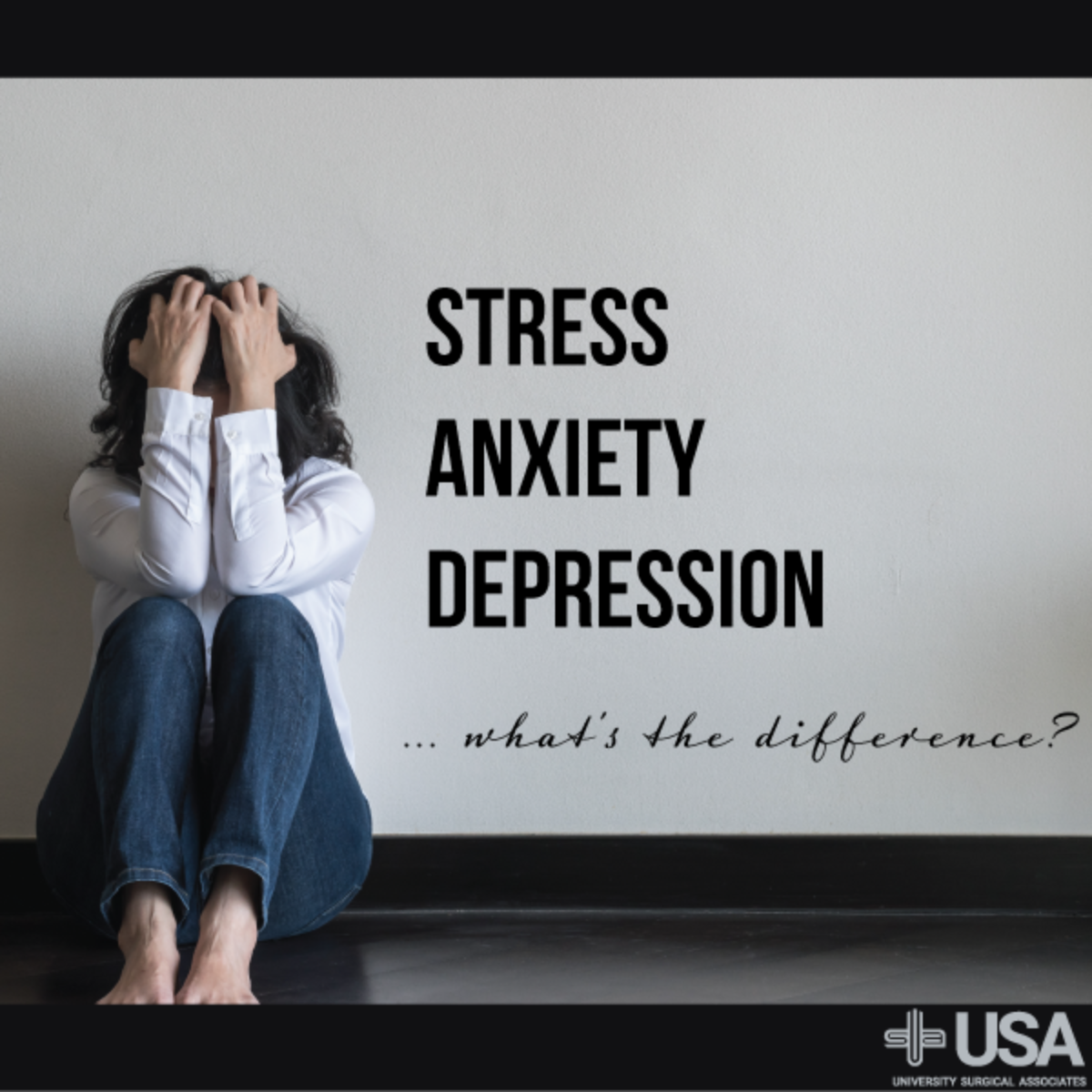 These are all symptoms that could be used to describe stress, anxiety or depression, and it can be difficult to understand the differences between these three common conditions.
These are all symptoms that could be used to describe stress, anxiety or depression, and it can be difficult to understand the differences between these three common conditions.
- Sadness
- Repetitive thoughts
- Worry about the future
- Tension headaches
- Difficulty sleeping
Even though they have distinct features, they can all be interconnected, making it difficult to tell which mental health issue is at play.Stress is the body’s natural response to change – and can show up physically, mentally or emotionally. It’s a normal part of life, and some aspects of stress can be positive, like when you’re running from danger or are trying to meet a deadline at work. However when stress is prolonged, it can have negative impacts on your body, including upset stomach, increased blood pressure, sleep problems, headaches and more. Unchecked stress can and does lead to an increase in anxiety and depression, which are clinical diagnoses that require a doctor’s care.
To dig a little deeper, anxiety isn’t stress – it’s the body’s response to stress. Anxiety is generally a feeling of fear or hesitation about the future. We’ve all experienced these feelings and it’s normal to feel anxious from time to time. But that’s different than clinical anxiety, which causes excessive, persistent and intense worry about common, everyday situations. Those with anxiety disorders often avoid situations that can trigger their feelings of anxiety, which can affect relationships, job performance and schoolwork.
Depression is a mood disorder that causes persistent feelings of sadness and loss that can interfere with activities of daily living – like going to school, work or completing projects and activities that are important to you. Feelings of depression are part of life, like when you lose someone you love or when life throws you a curveball. When these feelings don’t lift after a few days or weeks and are holding you back from relationships or things you once enjoyed, it could be something that requires a doctor’s care.
WHEN TO SEEK HELP
It may be difficult to recognize the symptoms of stress, anxiety or depression in yourself. These include feelings of hopelessness, guilt, irritability, restlessness, fatigue, difficulty concentrating or making decisions, a loss of interest in activities you once enjoyed, and more. New research has shown that during the COVID-19 pandemic, there’s been a dramatic increase in mental health disorders with a reported 1/3 of Americans show signs of clinical depression and anxiety.
It’s understandable that the conditions of the pandemic – limited social interaction, job uncertainty, grief over loss, fear of contracting the virus, and loss of community – are all reasons people are on edge. In fact, those who have never experienced these issues before are also reporting an uptick in unwanted thoughts and feelings of hopelessness. If this sounds like you or someone you love, it’s important to talk with your doctor right away.
The good news is that methods to reduce stress and medications designed to limit the impact of anxiety and depression are very effective, especially when combined with regular exercise, proper nutrition and adequate sleep. Most people see a quick improvement in symptoms when treated with anti-depressants or anti-anxiety medications, therapy or a combination of these services.
What’s more, many healthcare providers including mental health experts now offer telemedicine options, which is a simple and safe way to get the care you need from home. You do not have to face these issues alone – talk with a trusted friend or family member and reach out to your doctor today.



Leave A Comment